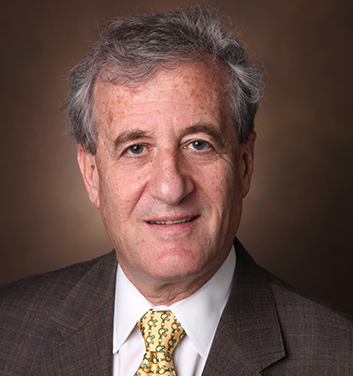Vanderbilt Basic Sciences
-

ACS journal dedicates of 35-year anniversary issue to founding editor Larry Marnett
In this issue of the 35th volume of Chemical Research in Toxicology (CRT), we share a special collection of science that celebrates the tremendous advances in this period at the intersection of chemistry and toxicology. Throughout the year, every issue of the Journal has borne a 35-year anniversary symbol to… Read MoreOct. 18, 2022
-

Vanderbilt’s Monteggia and Rathmell elected to National Academy of Medicine
Vanderbilt University faculty members have been elected this year to membership in the National Academy of Medicine, a prestigious, non-governmental organization that advises the nation and the world on important aspects of medical science, health care and public health. Monteggia was recruited to Vanderbilt in 2018 to… Read MoreOct. 17, 2022
-

Gene tied to childhood epilepsy
In the mammalian brain, the chief inhibitory neurotransmitter is called GABA. The gene SLC6A1 encodes the GABA transporter GAT1, and in Neurobiology of Disease, Felicia Mermer, Sarah Poliquin, Jing-Qiong Kang, MD, PhD, and colleagues report experiments — in silico, in vitro and in mice-o… Read MoreOct. 13, 2022
-

Vanderbilt’s Crowe receives the Building the Foundation Award from Research!America
James Crowe Jr., MD, director of the Vanderbilt Vaccine Center at Vanderbilt University Medical Center, has received the Building the Foundation Award from Research!America, a national biomedical research advocacy organization, for his team’s role in developing human monoclonal antibodies and vaccine candidates against COVID-19. The award, which was announced Oct. 6,… Read MoreOct. 7, 2022
-

Skaar et al land grant to build top-line biosafety facility
Vanderbilt University Medical Center has been awarded a nearly $8 million grant from the National Institutes of Health to construct a state-of-the-art BioSafety Level 3 (BSL3) facility for research involving the COVID-19 virus, anthrax and other dangerous microorganisms. VUMC currently has two BSL3 labs, but they are small, outdated and… Read MoreOct. 7, 2022
-

Lee named 2022 Innovation Fund investigator by The Pew Charitable Trusts
Dr. Ethan Lee, professor of cell and developmental biology and pharmacology, has been named a 2022 Innovation Fund investigator by The Pew Charitable Trusts. As a vote of confidence in the power of collaborative, interdisciplinary research, Pew created the Innovation Fund in 2017 to encourage partnerships among alumni of Pew’s biomedical programs. Combining… Read MoreSep. 28, 2022
-

The best of both worlds: Blending assays to understand human genome regulation
Assistant Professor of Biochemistry Emily Hodges and graduate student Tyler Hansen used a blended approach to create a new, multi-omic method to identify and characterize gene regulatory elements—non-coding DNA sequences that control gene expression—in the human genome. The new technique, ATAC-STARR-seq, was published in Genome Research. During… Read MoreSep. 20, 2022
-

Roden leads effort to map heart disease-causing genetic variations
One in 100 people have genetic variations that can cause potentially life-threatening heart conditions, including high cholesterol (lipid disorders), heart muscle disease (cardiomyopathies), and abnormal heart rhythms (arrhythmias). Yet the functional impact of most of these cardiovascular genetic variants — whether they disrupt normal function or are harmless — is… Read MoreSep. 15, 2022
-

Emily Hodges and Terunaga Nakagawa named 2022 Stanley Cohen Innovation Fund recipients
The Stanley Cohen Innovation Fund provides a yearly award to support innovative and groundbreaking research at Vanderbilt University. This year, after a competitive application process, Emily Hodges, assistant professor of biochemistry, and Terunaga Nakagawa, associate professor of molecular physiology and biophysics, were named as the 2022 recipients. Read MoreSep. 15, 2022
-

Immune cells drive beta cell loss in Type 2 diabetes
Obesity and overnutrition increase the risk of Type 2 diabetes through several mechanisms. One of these is through loss of the insulin-producing beta cells of the pancreatic islet. Wenbiao Chen, PhD, and colleagues previously have shown that overnutrition stressed the endoplasmic reticulum, the part of the beta… Read MoreSep. 8, 2022